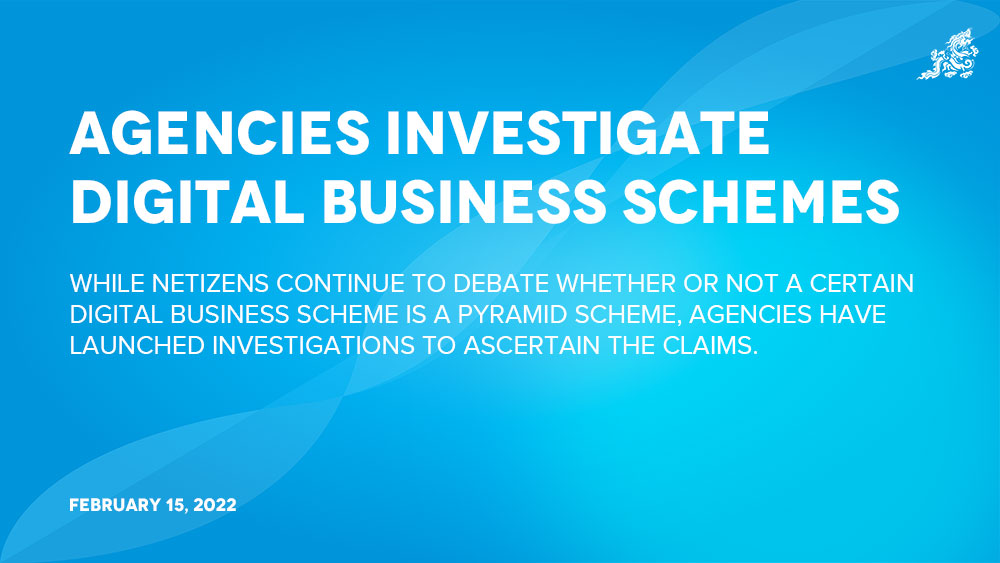Phub Dem
While netizens continue to debate whether or not a certain digital business scheme is a pyramid scheme, agencies have launched investigations to ascertain the claims.
The digital marketing scheme promotes Enagic’s water ioniser (Kangen water). While there are direct sellers of Kangen water in the country, the online networking community ‘digital business owners’ has come under scrutiny.
The Office of Consumer Protection is investigating and studying the case in collaboration with the Royal Monetary Authority and Bhutan Computer Incident Response Team.
The RMA recently asked the Bank of Bhutan, Bhutan National Bank, and Druk Punjab National Bank to restrict payments through credit and debit cards for a certain online business.
The letter to the banks states that the RMA is currently reviewing the legitimacy of the business and asked the banks to restrict the transactions with effect from January 28 until further notice. Further, the RMA asked the banks to inform them of any transaction attempt and request on such payments.
Trade Director Sonam Tenzin said that Enagic’s Kangen water promoters or distributors calling themselves digital businesses did not register as e-commerce businesses.
According to the E-Commerce Guidelines 2019, the operator should obtain a license for e-commerce business and get approval from the DoT. The e-commerce entities are mandated to provide accurate, transparent, and easily accessible information about the business to allow consumers to make informed choices.
Pyramid Scheme Identification Guidelines, 2021
Consumer Protection Rules and Regulations (CPRR) 2015 prohibits business entities from establishing, operating, or promoting a pyramid promotional scheme where a consumer receives compensation that is derived primarily from the introduction of other consumers into the scheme rather than from the sale or consumption of products.
As per the OCP, pyramid schemes are packaged to appear like legitimate businesses such as multi-level marketing (MLM) or direct marketing but are scams targeting vulnerable groups of people. Pyramid schemes are illegal in Bhutan. The OCP came up with a Pyramid Scheme Identification Guidelines 2021 to facilitate the investigation and identification of pyramid schemes to address and prevent such operations in the country.
According to the guidelines, a pyramid scheme might consist of prominent features such as emphasis on getting others to join rather than selling a product or service.
The emphasis is on getting individuals to join the scheme for a membership fee. Each newly recruited downline member must further introduce other members by promising profits based primarily on recruiting additional members to join the scheme, not based on earnings from any genuine sale or consumption of products by consumers.
It states that registration fees will be paid directly or indirectly and are renewed periodically. Generally, the company collects the registration and membership fee on the pretext of product sales.
There will also be promises of high returns in short periods, based on the introduction of members rather than the volume of sales. “The members are lured by ranks and promising higher financial returns within a short period.”
The compensation modalities are complex and beyond the comprehension of general consumers.
In such a scheme, product sales are between the members and recruits, and there is less transfer of products in the market. The incentive programme of schemes compels recruits to continuously recruit additional downline members and buy or sell products, often at inflated prices.
Some other features include provisions such as members being obliged to purchase specific products over a given time frame to be active members and earn bonuses. Members are often made to join the scheme without providing adequate time and information to understand the prospectus of the business.
Members at the top of the structure receive substantial compensations and profits based on the downline members’ recruitments and payments.
Drug Regulatory Authority
According to DRA Director Wangdi Gyeltshen, the Kangen water or Enagic machine is not registered with the DRA. He said to register it as a medical product, DRA will collect clinical trial documents and study the application in other countries before approving it.
He said that the promoters are not allowed to advertise claiming it has a health benefit or medical value, as Kangen water is not registered and approved as a medical product. “The testimony from consumers claiming the product has health benefits cannot approve them as a medical distributor.”
However, the promoters and distributors claim that the Kangen is a Japanese medical device in their online promotions.
Wangdi Gyeltshen said that the department was in talks with counterparts in Japan, as the distributors indicated the product as Japanese-made, and claimed it is a certified product.


